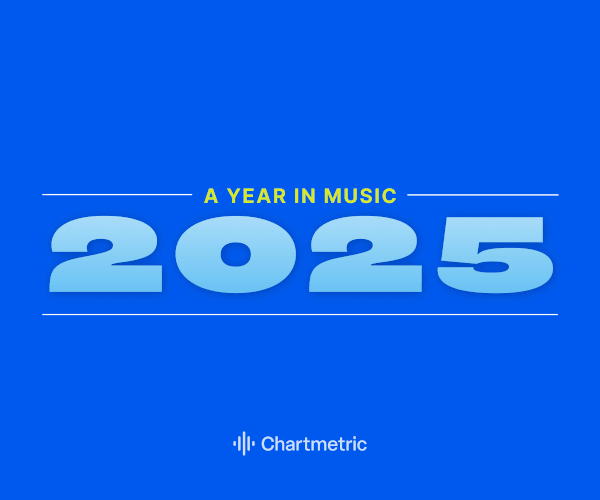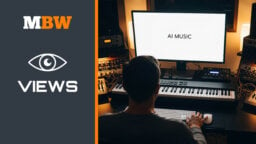MBW Views is a series of op/eds from eminent music industry people… with something to say. The following MBW op/ed comes from George Rose, Head of Broadcast and Digital, and Graham Best, Senior Manager – New Digital Markets, PRS for Music. In this op/ed, Rose and Best look at the changing and crucial relationship between music and games, along with the licensing issues and revenue streams that lie between the two…
What are the essentials for a blockbuster video game? A captivating story? A hyper-engaged player community? Dazzling visuals? For sure. A dynamic, emotionally resonant soundtrack wouldn’t hurt, either, no doubt about that. But how about a robust and fair, royalty-based licensing system for that music?
Well, until recently, not too many gaming companies might have had that last item on their list. But, with video game music rights representing a major opportunity for both industries, that’s about to change.
Gaming itself has undergone a remarkable transformation since the days of chunky cartridges and CD-ROMs. Games are now predominately downloaded and played online, with extensive back-catalogue games easily accessible, meaning the lifespan of a typical title has been radically extended. Gaming platforms now incorporate subscription models and cloud gaming, while metaverse and live-service games push immersive, interactive experiences that are never truly completed.
Such innovation has a direct impact on the rights involved when licensing music into games. Crucially, online performing rights need to be cleared at scale – not to mention added complexity for synch licensing, stemming from the use of music that now goes way beyond a (relatively) simple physical-media licence.
We say ‘relatively’ because the gaming world has long considered music licensing to be a complex and slow process, with its requirement to secure rights on both the publishing and master recording sides, often from multiple rights-holders.
Over the years, that has led to a buy-out culture becoming entrenched at many games companies, who have seen buy-outs as the only way to guarantee they have all the rights they need. Unfortunately, this doesn’t hold true for online use, and we now need an industry-wide change in approach to ensure composers and songwriters are fairly remunerated for their work that hugely enhances the gaming experience.
A society-led, collective licensing model, built on robust and sustainable royalties for all music rights-holders, will address many of these challenges. High-profile disputes, such as Martyn Ware of Heaven 17 publicly airing his concerns over a proposed buy-out deal for Grand Theft Auto VI, can be avoided with greater clarity on how and when each instance of music will be licensed and paid for.
Yes, there is an obvious revenue upside for the rights-holders we represent in moving to such a model, but there is equally an upside for game developers. After all, many of them are also music rights-holders, having built up impressive catalogues of beloved soundtracks with global fanbases, that will benefit from downstream royalties – especially where soundtracks travel into other media, such as The Last of Us TV show, or League of Legends’ move into music collaborations between its characters and real-world music artists.
We all know about the attention economy and how music can play a key role in keeping fanbases engaged outside of the game itself. No wonder many game developers already partner with traditional music publishers.
PRS for Music research shows that 55% of top game developers already have at least partial integration of their music catalogues with Performing Rights Organisations and are registering their musical works via rights administration partnerships.
And it’s not just about the 300lb gorillas of the sector; there is a burgeoning independent developer community whose titles reach large audiences and who can benefit enormously from the additional revenue stream which music royalties will provide.
Making such a shift in how the sector operates will not be easy, of course, but PRS for Music stands perfectly placed to facilitate it. Our long-standing partnership with Sony PlayStation, first signed back in 2013, has given us a unique understanding of the sector.
Alongside our investment in best-in-class distribution and data processing systems, we have also already developed a pioneering in-house repository of cross-platform game cue sheets, to ensure accurate and timely royalty distributions for game soundtracks.
PRS for Music firmly believes that a clear and decisive shift away from buyouts, and towards a consistent royalty model is the right thing to do for all music rights-holders – composers, music publishers and game developers alike. We need to address issues of the past, including unlicensed performing rights, and we need to pave the way for gaming platforms to continue building new and innovative
music integrations.
Major platforms such as Fortnite and Roblox are moving towards UGC functionality, while also becoming hugely important music discovery platforms for Generation Alpha. Music and music experiences have been key to these platforms’ explosive growth, and society licensing models can enable these platforms to continue building out their music proposition with ever-expanding musical repertoires, safe in the knowledge that all necessary rights are cleared and paid for.
“Music can play a key role in keeping fanbases engaged outside of the game itself. No wonder many developers already partner with traditional music publishers.”
We are already seeing some early warning signs around AI music in mobile gaming apps in particular. This threat only increases the urgency to establish consistent and simple royalty models across the sector, to deter developers from choosing what they may sadly see as the easy way out.
As a pro-human creativity organisation, PRS for Music wants genuine, non-AI music to still be a celebrated feature of video games in 10 years’ time. (This is not to say there aren’t real opportunities for AI technology to improve reporting and matching of music on gaming, and other, platforms.)
After all, these are potentially transformational times for the gaming sector. After a period of explosive growth through the early 2020s, and the inevitable post-Covid slowdown, there is great anticipation for the launch of Nintendo’s new Switch 2 console and the arrival of Grand Theft Auto VI, with hopes that both will reinvigorate the industry towards new highs.
Expectations around GTA VI are enormous, with the blockbuster game set to be one of the tentpole media events of the year. With its 12-year-old predecessor, GTA V, having sold 200 million units and generated over $8 billion, that status is entirely justified.
Unquestionably, the gaming sector is a “behemoth with unprecedented global reach” (Forbes, 2023), with a revenue base exceeding those of the music and film industries combined. This is a crucial industry we’re unlocking for PRS members, to ensure the same, equitable treatment for the use of their works as in film and TV.
All of which means a music licensing endgame where everybody wins is in sight. PRS for Music is already playing the game, so come and join us.

MBUK is available as part of a MBW+ subscription – details through here.
All physical subscribers will receive a complimentary digital edition with each issue.
Music Business Worldwide





